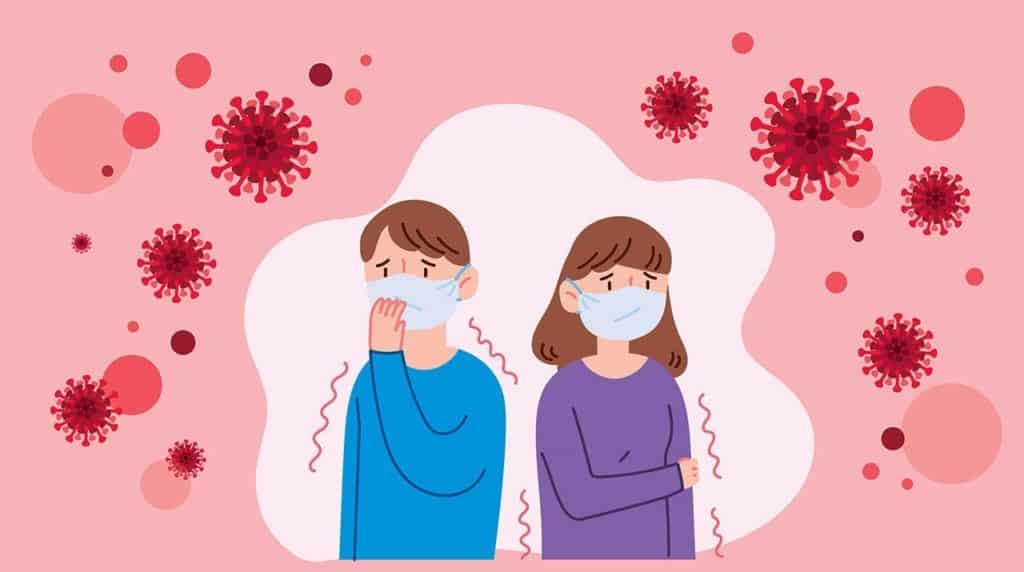Let’s be honest, there are a lot of things in life we can’t change. In fact, most of what we think we can control is probably stuff we have little handle on, too. The amount beyond our control is also beyond our comprehension. And when there’s a global pandemic in the mix, you’re likely to feel even more anxiety than usual. Right now, many people are following orders to keep themselves physically safe from the newest global pandemic, COVID-19. But in doing so, they’re also facing a lot of uncertainty and isolation. It’s important to find healthy ways of coping with what you can’t control. When we struggle with trying to control things that are impossible to control, we inevitably face resistance and anxiety. So what is there to do?
Luckily, we’ve prepared 7 actional tips and coping skills that will help you handle your anxiety.

1. Speak Your Truth
“Vulnerability is not winning or losing; it’s having the courage to show up and be seen when we have no control over the outcome. Vulnerability is not weakness; it’s our greatest measure of courage.” — Brené Brown
There is absolutely no shame in being vulnerable. You might be experiencing uncomfortable emotions right now, but so are tons of other people. Luckily, every thought or feeling you’ve ever experienced has also been experienced by someone else, somewhere else, at some point in time.
It’s normal to feel fear
It’s normal to feel anxiety.
It’s normal to feel overwhelmed.
All of these emotions are universal experiences that everyone deals with (and sometimes regularly).
When we choose to open up and become vulnerable with people we feel safe around, something very magical happens: we realize that we are never alone. We also get the chance to help our peers with their very own struggles and strengthen our bonds with them.
While we’re in social isolation from many of our closest friends and family members (something we don’t have much command over right now), maintaining healthy connections with our loved ones is crucial.
Have the courage to open up and speak your truth to those you trust, whether it’s by telephone or video chat. Maintaining your connections is a choice that will provide you with the comradery necessary to tread through trying times.
2. Ask For Help
Along the same lines of being vulnerable with those we trust, be sure to ask for help if you are having unusually hard trouble with coping with any current uncertainty.
When we’re not in the driving seat of our current situation, we fear for our safety on a subconscious level, thus causing anxiety and stress. Sometimes this anxiety and stress compounds, which is nothing to be ashamed of.
There are plenty of ways for you to ask for help. If you struggle with asking for help from friends or family members, there are therapists, counselors, and other psychological professionals that can provide a private, helping hand.
3. Pray (To Something!)
Before you run and hide, remember that you don’t need to believe in God, in the traditional description of the bible, to pray. Many people find deep healing and solace in praying to other, more personal or unique higher powers. One powerful benefit to developing a strong relationship with a higher power and a steady spiritual practice is the ability to intentionally and consistently give up your control (or struggle for control) over the forces that are beyond your grasp. Prayer and meditation help us “turn over” that which is beyond our capacity to carry, and focus instead on self-betterment and maintaining an internal locus of control.

4. Take Control Of Your Thoughts
As we mentioned earlier, there is a lot in life that is beyond our management.
Whether it’s an economic crash, a global pandemic, or your mother-in-law’s opinion of you, there is a lot that we must let go of to live a more free and content life. It’s a bit immature to think we’re the one and only director of our shows, but we are surely the directors of our character. Unfortunately, many people feel a profound lack of control over their thoughts. In a time of chaos, it’s important to remember that our thoughts are actually one of the only things we truly can control. One of the most powerful tools we have as humans is the ability to choose one thought over another. Those who focus on trying to manage external forces, such as anyone else’s thoughts, words, or actions, are more likely to experience stress and anxiety than those who don’t.
Practices and methods that can help you take control of your inner dialogue include:
- Meditation
- Cognitive Behavioral Therapy
- Dialectical Behavioral Therapy
- Journaling
- Adopting A Mindfulness Practice
5. Avoid Drugs, Alcohol, And Other Vices
Drugs and alcohol may make us feel better in the moment, but they will never permanently eradicate our fears and anxiety. In fact, in the long term, they worsen our problems. Drugs and alcohol affect our body chemistry, making coping with anything more and more impossible as time goes on. If you begin leaning on drugs or alcohol during the Coronavirus crisis, reach out to a drug and alcohol treatment center or seek out online 12 step meetings and other virtual support groups. During such a trying time, maintaining mental clarity will help you cope with everything that is out of your bounds.

6. Focus On Good News
Right now, it’s likely you’re seeing a lot of sensationalism within the news on websites, social media, in newspapers, and other platforms. Part of controlling our thoughts also means managing the information and material we absorb. Consuming ever-streaming news programs (that, yes, are frequently created just to attract an audience) has more of an effect on our mental health than we realize. The intentional consumption of media is vital to protect your emotional well being when a lot is going on in the world (even more than usual) that you have no control over. Try limiting your use of social media or your consumption of daily news to a healthy amount – perhaps 15 minutes a day – and filling the excess time with healthy distractions and hobbies, such as:
7. Try Deep Breathing Techniques
Believe it or not, there are physiological reasons that merely managing your breathing can help prevent or alleviate panic attacks, reduce anxiety and stress, slow your heart rate, and effectively handle negative thoughts.
When we focus on intentional breathing, our sympathetic nervous system automatically relaxes. In turn, this lessens the body’s “fight-or flight” response and puts a halt to the cortisol and adrenaline that floods our minds when we’re stressed.
Deep breathing exercises help you focus on the present moment and pay attention to the sensations occurring in your mind and body when you’re struggling to maintain control of your own emotions. In just two minutes, breathing exercises can alter your state of mind in the right ways.

Remember, fear and uncertainty are a normal part of life – especially when you lack control for what’s going on around you.
So, challenge the status quo! Use this stressful time to turn a scary situation into a teacher that is providing an opportunity to grow.
If any of these tips helped you, spread the word and share our article! And if you or a loved one is struggling with substance abuse during the coronavirus outbreak, chat with our addiction professionals today to learn more about your recovery options during your quarantine.
